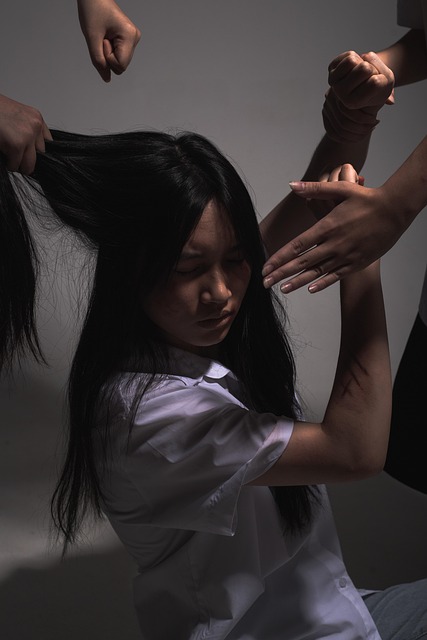Teen Challenge programs, while aiming for spiritual growth, can become abusive environments with manipulation and control tactics disguised as discipline. Survivors may struggle to recognize this due to the unique culture and language of these communities. To break free, survivors should seek external validation, connect with loved ones, and reach out to specialized support groups for Teen Challenge Abuse recovery. These resources offer safe spaces, emotional support, practical advice, counseling, legal aid, education, and empowerment programs tailored to healing. The journey involves understanding the survivor's experiences are not their fault, adopting healthy habits, setting boundaries, practicing assertiveness, and reintegrating into society at their own pace for a brighter future free from Teen Challenge Abuse.
“Surviving Teen Challenge abuse is a challenging yet transformative journey. This article offers comprehensive resources and guidance for those navigating this difficult path. We delve into the intricacies of understanding and recognizing Teen Challenge abuse, providing insights to help break free from its cycle. Furthermore, we explore an array of support systems and networks tailored for survivors, offering healing strategies for a promising future. By harnessing these resources, individuals can reclaim their lives and forge ahead.”
- Understanding Teen Challenge Abuse: Recognizing and Breaking the Cycle
- Support and Resources for Survivors: Building a Network of Help
- Healing and Recovery: Strategies for a Brighter Future
Understanding Teen Challenge Abuse: Recognizing and Breaking the Cycle

Many young people find themselves caught in a cycle of abuse within Teen Challenge programs, which are designed to offer spiritual and character development, but can sometimes become abusive environments. Understanding the dynamics of this type of abuse is crucial for recognizing and breaking the cycle. Emotional manipulation, isolation from support networks, physical punishment, and control over personal choices are common tactics used by leaders in these programs, often disguised as discipline or spiritual guidance.
Survivors may face challenges in identifying the abuse due to the unique context and language of Teen Challenge communities. They might internalize the messages that any dissent or struggle is a sign of weakness or lack of faith. Therefore, it’s essential for survivors to seek validation outside these circles, connect with trusted friends or family members, and reach out to support groups specializing in Teen Challenge abuse recovery.
Support and Resources for Survivors: Building a Network of Help

Surviving Teen Challenge abuse can be a challenging journey, but there are numerous support systems and resources available to help heal and rebuild. The first step is to recognize that you’re not alone—many individuals have experienced similar situations and are eager to offer assistance. Connecting with like-minded people through support groups, either in-person or online, provides a safe space to share experiences, gain insights, and find comfort in shared struggles. These groups often foster a sense of community, offering emotional support and practical advice for navigating the aftermath of abuse.
Beyond support groups, various organizations specialize in assisting Teen Challenge Abuse survivors. They offer counseling services, legal aid, and advocacy to ensure justice and accountability. Many also provide educational resources, workshops, and programs focused on empowerment and personal growth. Utilizing these resources can help individuals regain a sense of control, develop coping strategies, and take proactive steps towards healing and a brighter future.
Healing and Recovery: Strategies for a Brighter Future

Healing and recovery from Teen Challenge abuse is a journey that requires patience, support, and an understanding of the unique experiences survivors have endured. The first step involves recognizing that it’s not the survivor’s fault—a crucial mindset shift that empowers them to begin their path to wholeness. Many survivors find solace in therapy or counseling, where they can process their trauma, express emotions safely, and develop coping mechanisms tailored to their needs. This journey often includes various therapeutic approaches, such as individual or group therapy, art therapy, or support groups specific to Teen Challenge Abuse survivors.
Support from peers who have gone through similar experiences can be invaluable. Sharing stories and strategies in a safe space encourages resilience and fosters a sense of community. Additionally, establishing healthy habits like regular exercise, mindfulness practices, and maintaining a consistent sleep schedule can significantly contribute to overall well-being and healing. Survivors are encouraged to set boundaries, learn assertiveness skills, and gradually re-engage with the outside world at their own pace. This process is as unique as each survivor’s experience, but with access to the right resources and a supportive network, a brighter future free from the shadows of Teen Challenge abuse is achievable.
For those who have experienced Teen Challenge abuse, finding support and resources is a vital step towards healing and recovery. By understanding the patterns of abuse and building a network of helpful resources, survivors can break free from the cycle and embark on a journey towards a brighter future. Remember that there are many organizations and communities dedicated to supporting individuals who have faced such challenges, ensuring they are never alone in their fight for justice and well-being.
